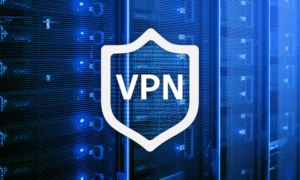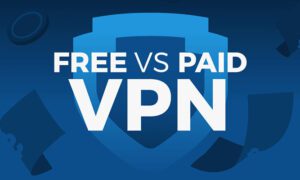Are you tired of constantly worrying about your online safety? In a world where cyber threats are on the rise, it’s more important than ever to take control of your digital security. That’s why we’ve compiled the ultimate list of top 10 tips that will instantly boost your online defenses and give you peace of mind. From safeguarding your passwords to outsmarting phishing scams, get ready to discover powerful techniques that can make all the difference in enhancing your online security today.
What is Internet Security?
Internet security can be broken into two categories: perimeter and internal.
Perimeter Security refers to the measures taken to protect your computer from unauthorized access, such as a firewall, antivirus software, and an encrypted network.
Internal Security refers to measures taken to protect your data (such as passwords) and personal information (such as bank account numbers) from being accessed by unauthorized individuals.
There are many different types of breaches that can occur online, including password theft, hacking, phishing scams, and virus infections.
To stay safe online, make sure to practice frequent cyber hygiene by checking your email and browsing history regularly for suspicious activity, using strong passwords and personal information hygiene rules (don’t share your login credentials with anyone), always use a secure browser when online, confirm the authenticity of websites you visit by Hovering over the Flag in the Address Bar, installing anti-virus software on your devices and updating it regularly, and keeping up-to-date on industry best practices for internet security including using 2 factor authentication when available.
How to Protect Your Computer from Cyber Crime
1. Use a strong password: Make sure your password is at least 8 characters long, contains at least one number and one symbol, and is not easily accessible to others.
2. Keep your software updated: Check for software updates regularly to ensure that you are using the most up-to-date security technologies available.
3. Use a firewall: A firewall can help protect your computer by blocking out attack vectors before they have a chance to occur.
4. Avoid clicking on links in unsolicited emails: Do not click on any links in unsolicited emails unless you are absolutely certain of who you are dealing with.
5. Protect your online presence: Install antivirus software and use proper security settings on all of your online accounts, including social media platforms.
Tips for Keeping Your Emails and Data Safe
email and data security is a top priority for many people. Here are some tips to help you keep your data safe online:
1. Use a strong password: Make sure your passwords are strong and unique. Even if you use a password manager, make sure each of your passwords is different.
2. Keep your computer and any devices you use regularly secure: Cybercriminals target computers and devices that are easy to access and use. Always install the latest security updates, keep your computer clean and well-maintained, and avoid downloading or opening suspicious files or attachments.
3. Connect only to trusted connections: Don’t connect to unsecured networks such as public Wi-Fi spots or open hotspots at cafes or hotels. Use secure connections such as HTTPS when possible.
4. Protect yourself with two-factor authentication (2FA): Cybercriminals often try to steal account details by using simple tricks such as phishing emails that ask for personal information like passwords or PINs in addition to normal login credentials. To protect yourself, set up 2FA on all account types where possible (including social media accounts). This way, even if someone gains access to your login credentials, they won’t be able to access your actual account information unless they also have access to your 2FA device(s).
10 Ways to Improve Your Webcam Security
Are you feeling exposed when you’re online? Do you feel like your webcam is a target?
Here are five ways to improve your webcam security.
Ensure That Your Webcam Is Up To Date: When it comes to webcams, the latest and greatest security software is always worth updating. For example, Microsoft has released Enhanced Cryptography for HTTP (ECHTTP) which offers better protection against man-in-the-middle attacks. This update is available through Windows Update or Microsoft Update Activities.
Enable Two Factor Authentication: More and more sites are requiring two factor authentication in order to login. Two factor authentication means that not only does your password need to be entered next time you log in, but also you need to enter a code sent to your phone via text, email or even a specially created app.
Disable Automatic Uploading: Whenever you start up your webcam and it asks if you want to begin uploading automatically, usually select ‘No’. You should have the option of whether or not you want automatic uploading enabled, as well as the option of setting a time limit for how long the footage will be uploaded before it is deleted.
Utilize Contextual Security Questions: When registering with some websites, they may request personal information such as your first name and last name. In addition to this type of information being requested throughout the registration process, certain website providers may also ask questions designed specifically for social media platforms or other websites that could prove sensitive or embarrassing if disclosed.
Be Wary of Flooding: When your webcam is streaming live video, be wary of people flooding the camera with repeated or continuous requests for video footage. This floods the camera and can cause it to shut down or become unstable.
By implementing some simple security measures, you can help protect yourself from potentially compromising webcam footage.
5 Ways to Protect Your Privacy Online
1. Use a VPN: A virtual private network (VPN) helps keep your information private by encrypting it as it travels over the internet. By using a VPN, you create an encrypted tunnel between your computer and the VPN server, which helps protect your privacy.
2. Use two-factor authentication: Two-factor authentication adds an extra layer of security to your online accounts by requiring you to provide not only your username and password, but also a code generated by your device or app. This way, if someone else obtains your login information, they won’t be able to access your account without also possessing the second factor.
3. Keep up with updated security patches: Protecting yourself online requires vigilance – make sure you keep all of your devices and software updated with the latest security updates in order to stay safe.
4. Don’t share personal information: When sharing personal information online – like contact details or banking passwords – be careful not to leave any clues that could lead to identity theft.
5. Use burner phones: Burning phone numbers is one way to destroy any evidence that could lead back to you if something goes wrong online.
It’s no secret that online security is important – and fortunately, there are many simple steps you can take to safeguard yourself online. In this article, we’ve provide our top 10 tips for enhancing your online security today. By following these guidelines, you can help protect your personal information, deter cyberattacks, and more. Thanks for reading.



































